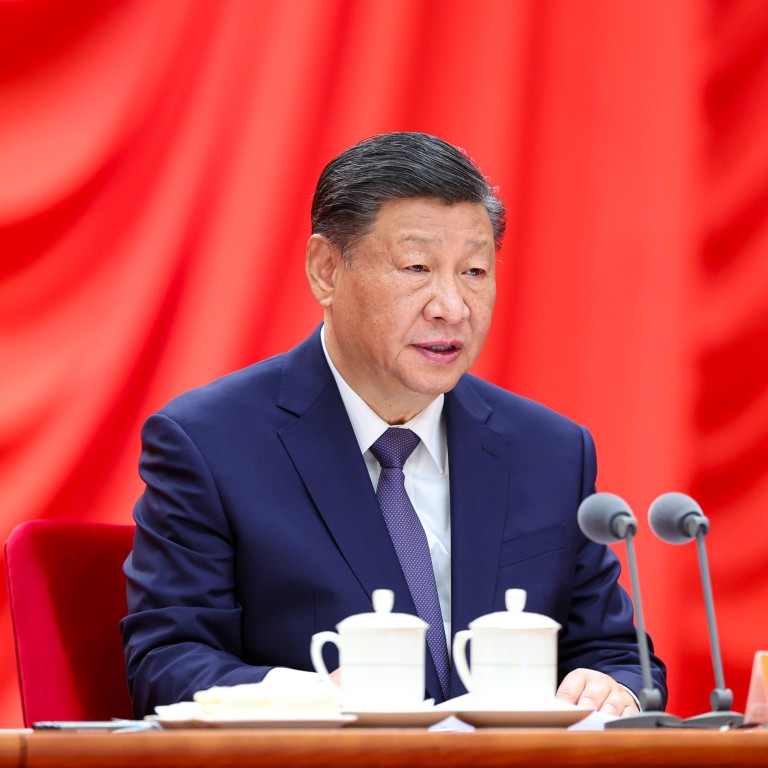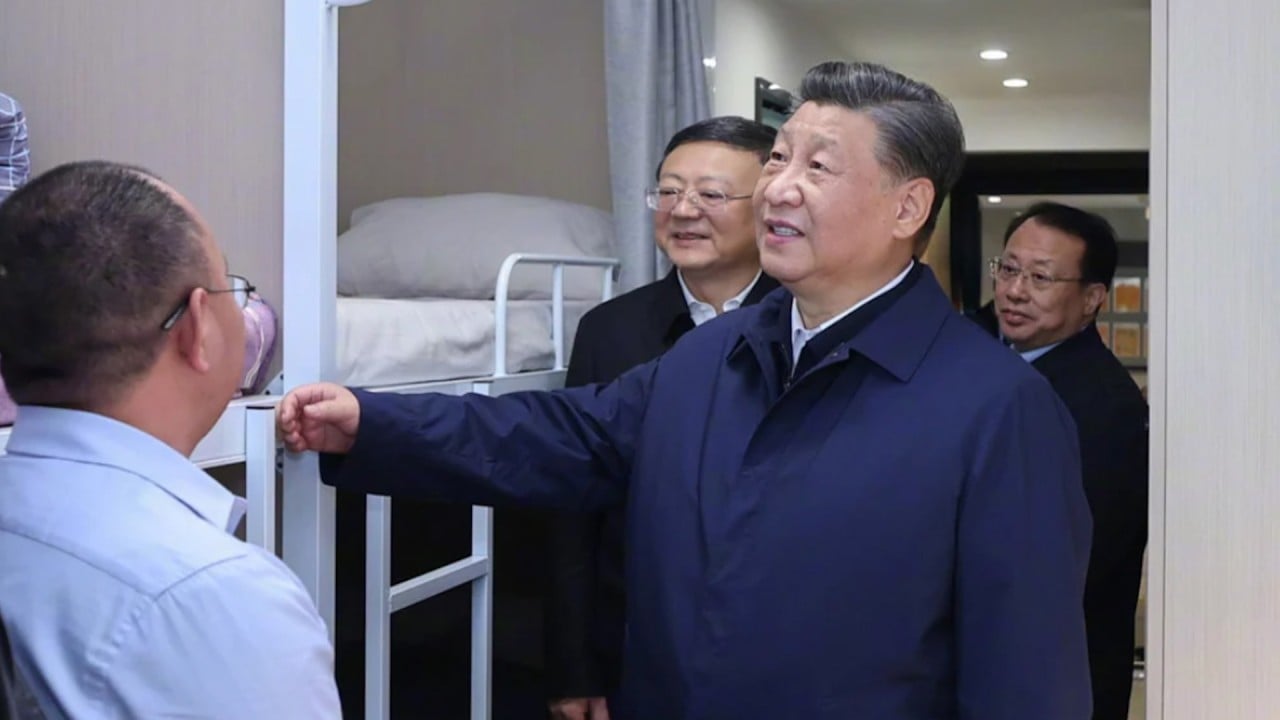
Chinese leaders hint at increased focus on politics and Communist Party discipline for coming year
- The first Politburo meeting of 2024 – a year that marks the 75th anniversary of the People’s Republic of China – focused on political control and party discipline
- The meeting also offered clues that a key economic policy meeting, the so-called Third Plenum, would be delayed until later this year
While China’s lacklustre economic recovery continues to be a major concern for foreign investors, Chinese leaders focused on strengthening political control and party discipline in a statement issued after the meeting.
Maintaining stable economic growth remains an important objective, but the main stress is squarely on the political front in a year that will see the People’s Republic celebrate its 75th anniversary.
The central government may still unveil more forceful stimulus packages later at the annual “two sessions”, when the national legislature and top political advisory body meet, but it is unlikely Beijing will make economic growth the only priority.
The omission suggests that the event, which many observers had expected to take place last year, will not be held before the two sessions.
China’s admin restructure ripples out to provinces to tighten party control
The Politburo statement published by state news agency Xinhua had a strong political tone and emphasised the need for party discipline, consolidating the political base and “maintaining a fighting spirit and strengthening the ability to struggle”.
It said the meeting had reviewed the work of five top party organs, concluding they had “performed their duties diligently surrounding the party and the country” and “contributed to economic development and social stability, achieving a good start in all aspects”.
It said that one of these bodies, the Central Secretariat, had “worked effectively in promoting and implementing party policies and strengthening intraparty laws and regulations”.
The meeting has now set the stage for the two sessions, giving the National People’s Congress and Chinese People’s Political Consultative Committee a chance to report to the Politburo before the main event.
The Politburo meeting also reviewed a report on studying Xi’s political philosophy and party regulations on inspection work.
The Politburo heard it was important to focus on “the highest political principle of centralised and unified leadership of the Party Central Committee, focusing on the biggest political issue of promoting Chinese-style modernisation” and continue to implement the party’s major strategic plans.
There was also an emphasis on educating cadres about the party’s new theories, urging them to correct bureaucracy and formalism and do practical work for the people. The meeting also heard that an eye must be kept on “senior cadres” as well as issues which generate strong public grievances.
The meeting also stressed that high-quality development and deepening reform and opening-up were also major tasks and were necessary to ensure the main points of the Central Economic Work Conference are faithfully implemented.
‘Long and arduous’ road ahead for China’s attempt to discipline party ranks
This year marks the 75th anniversary of the establishment of the People’s Republic of China and a key year in the current five-year plan, which was drafted in 2020.
Last week, Premier Li Qiang ordered authorities to find ways to attract more long-term investors to the country’s capital markets, after stock markets in Shanghai, Shenzhen and Hong Kong suffered sharp falls.
But Beijing also faces a challenging situation as it seeks to regain confidence internationally while facing a series of geopolitical tensions and the uncertain impact of this year’s US elections.
Brian Wong Yue-shun, assistant professor of philosophy at the University of Hong Kong, said that the Politburo meeting signalled three key priorities.
“Bolstering youth employment and other economic rejuvenation matters seems ranked lower than the first two goals, and only matters insofar as [creating] jobs are concerned. GDP targets are not super important, but keeping the ‘rice bowls’ full is.”
On Wednesday, Xinhua also published an article by Xi, which will also be carried in the Communist Party’s top theoretical journal Qiushi, emphasising the need to “forge a sense of community of the Chinese nation”.
The article said since the 18th party congress in November 2012, when Xi was confirmed as top leader, the party has stressed the concept of the “big family of the Chinese nation” and promoted a sense of community.

.jpg?itok=H5_PTCSf&v=1700020945)

